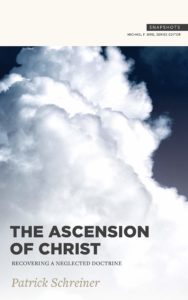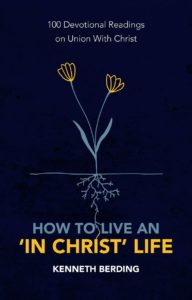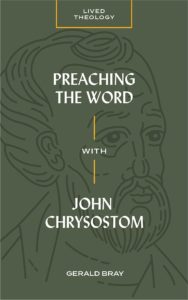
Barrett’s Book Notes: Ascension, Union with Christ, and John Chrysostom
I am a voracious reader, in part because I enjoy reading, in part because I believe reading is essential to maturing theologically and as a Christian. Lately, I was asked to read and endorse a number of books. Here they are and why I think you might just enjoy them:
 The Ascension of Christ, by Patrick Schreiner
The Ascension of Christ, by Patrick Schreiner
I cannot remember the last time I heard a Christian talk about the ascension of Christ, let alone why it is indispensable to the Christian faith. But it is! Patrick Schreiner opens our eyes to a myriad of ways the ascension matters for Christ and his church. Apart from the ascension, Christ’s authority as prophet, priest, and king is not vindicated, nor can he continue his intercession and reign from his heavenly throne, or build his church by his word and Spirit. Without the ascension we have no future hope either. So pick up and read this book. For not only is Jesus alive, but he reigns, guiding his church until one day we ascend with him in glory.
 How to Live an ‘In Christ’ Life, by Ken Berding
How to Live an ‘In Christ’ Life, by Ken Berding
I cannot remember the last time I read a book on union with Christ and was so convicted that I stopped and prayed. But that is exactly what happened when I read the book by Ken Berding you hold in your hands. Without compromising biblical and theological depth, Berding unveils the innumerable ways union with Christ makes a real difference in the Christian life. Not only will Berding clarify who you are as a Christian but he will help you know how to live like a Christian. Through his own experience as a professor, missionary, husband, and father, Berding will open your eyes to the centrality of union with Christ.
 Preaching the Word with John Chrysostom, by Gerald Bray
Preaching the Word with John Chrysostom, by Gerald Bray
Today, so few Christians know the church fathers, let alone have read their writings. We have cut ourselves off from one of the most important voices in the history of the church. So, I am ecstatic to see Gerald Bray retrieve a father like John Chrysostom, that golden-mouth preacher. Chrysostom not only defended the deity of Christ against Arianism, but he also modeled sound biblical interpretation. Leaving us over six hundred sermons, pastors today will benefit by examining Chrysostom’s rhetorical approach—especially in our day when rhetoric has been exchanged for visual stimuli. But pastors and scholars alike will be also humbled by Chrysostom’s refusal to preach the scriptures in a clever, sophisticated style, as if Christianity is only for elites. Chrysostom exemplified his Savior, as well as the apostle Paul, by preaching the scriptures with clarity. In doing so, Chrysostom imitated our incomprehensible Creator, who accommodated himself, even to the point of incarnation, to make his grace known. Read Bray on Chrysostom, and then go read Chrysostom for yourself!

